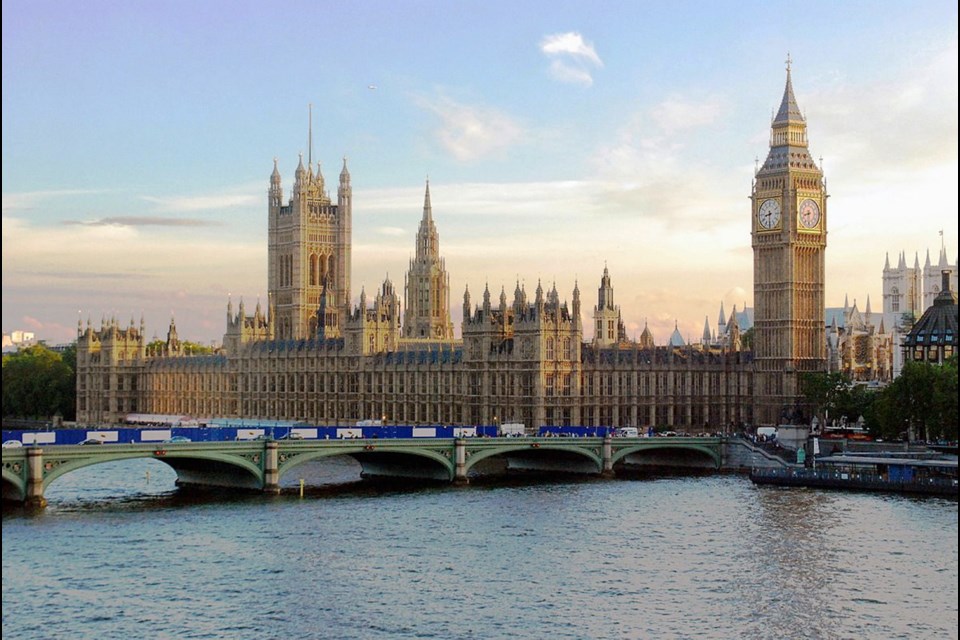I will not support the proportional-representation referendum. What is at stake is how we decide to cast our vote when we elect MLAs. The electoral process is only a tiny part of the democratic system of government that has to date served us well, also called the Westminster model of parliamentary democracy, which is different from the system used in the U.S. or in much of Europe.
In our system of government, we do not officially vote for a party, nor for a party leader, but only for someone to help make future decisions as part of a team on our behalf, and then for a time horizon stretching well beyond a future that can be defined as certain.
This implies the need to elect MLAs in whom we have confidence that they will give proper consideration to the handling of as-yet-unknown governmental challenges. Only one form of proportional representation can achieve something similar, the alternative vote, whereby we, faced in a constituency with a list of candidates, can insert our first and second choice, and thus maximize the chance that the person elected will enjoy broad electoral support in his or her constituency.
If the candidate with the highest numbers of votes does not command an overall majority, adding the second choice of the electorate might give him or her the necessary mandate to govern on our behalf. Whether this minor modification of our existing system is worthwhile is a moot point.
I am ignoring the other important function of MLAs — constituency work.
A key driver of PR enthusiasts is the idea that we should really be voting for a platform, whatever that means. For the Green Party, for instance, the platform entails environmental regulation. But how a Green candidate would deal with an unforeseen economic crisis cannot be part of their platform, or anyone’s platform for that matter.
For any platform, or set of political promises to have any merit as a decision determinant, it would be essential to have crystal clear knowledge of what the next four years holds in store, and this is an absurd notion. Politicians are vilified for breaking promises, but what is the point of making promises for an unknown future?
Politicians try to get elected by promising the moon, but an electorate that solely focuses on platforms and promises is guaranteed to be disappointed and therefore is foolish. No politician will ever promise more taxes, but unfortunately that sometimes is the price we have to pay for certain ends.
Then there is the matter of leadership. Typically, the premier will be one of the MLAs duly elected, regardless of the electoral system. Which constituency he or she represents is immaterial. It follows that when we, the electorate, decide between candidates, a key factor in our reasoning should be this: Which of the candidates on our list would make the best premier? Ideally, each of the 87 MLAs would be potential premier material, and it would be up to the newly elected legislature to make that choice.
In practice, this is done through the vehicle of parties. It might well be that the party leader, identified before the election takes place, does not win a seat, and that the MLAs have to find a different candidate to inherit the mantle of premier. The party membership might in their wisdom have selected what they determine is a good leader, and by implication would make a good premier, but if the constituency where this politician is standing for election disagrees with the party’s judgment, that is the end of the story.
And what constitutes a good leader? Any premier who does not make an attempt to govern for all British Columbians, regardless of race, religion, economic circumstance, ethnicity or obsession with one or another worthy issue, is not a good leader.
There are countries in the world that proclaim themselves as democracies, where the elected head of state will actively support and promote his or her electoral base to the detriment of the rest of society. They clearly make no attempt to govern on behalf of the entire electorate, resulting in violence born of frustration, and those states sooner or later become failed states. We do not need that future.
Pleasing an entire electorate is impossible, but the premier and his cabinet must be seen to make an attempt to address all concerns.
In conclusion: The notion that we are electing representatives and not delegates is an integral part of our parliamentary system. We need MLAs who think and are not merely voting robots for their electoral base. This requires politicians who think in terms of the big-tent model.
Weakening this part of our constitution, by encouraging single-issue candidates, who capitalize on a wave of enthusiasm for one or another perceived newsworthy concern, can only be detrimental to good governance.
Boudewyn van Oort lives in Victoria.



